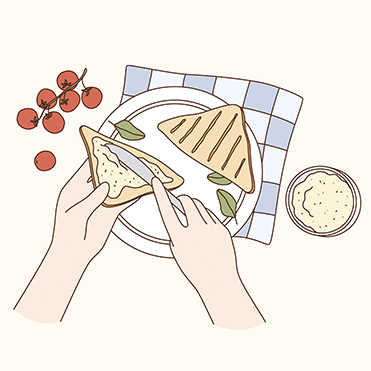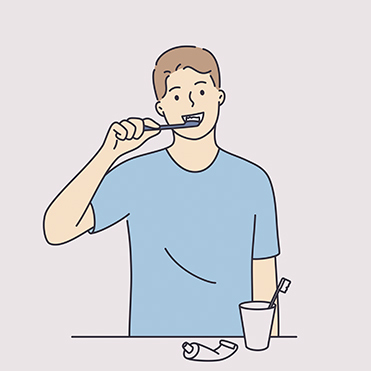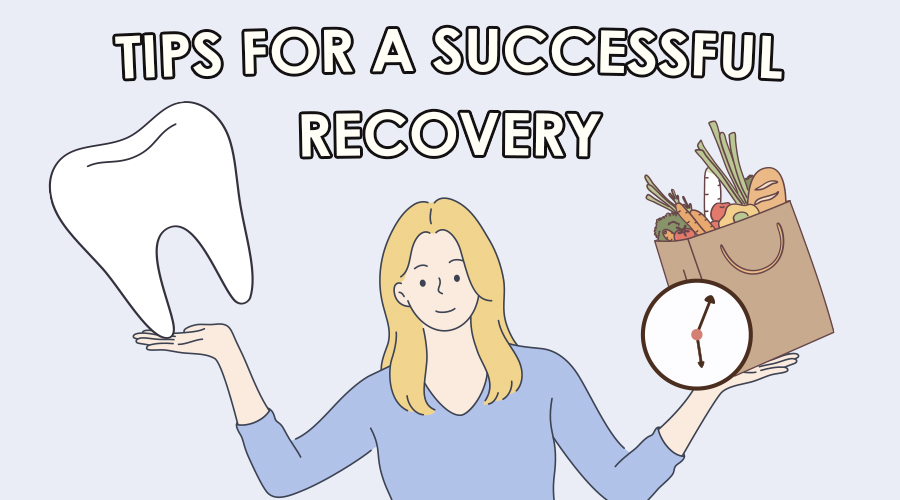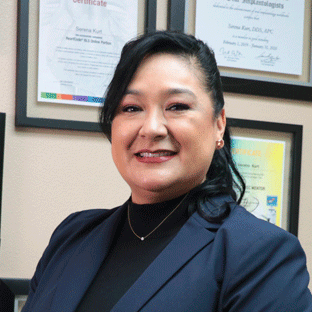When patients get a tooth extracted here with Dr. Kurt, a dentist in Clairemont, San Diego, one of the most common questions from them is “when can I eat after tooth extraction?“
After a surgery like that, eating is one of the main things you should be careful with, that is key in your healing process, and here I will explain why.
First and foremost, why do you have to be so careful after an extraction? Your dentist might have mentioned this already, but here it goes again, so you’ll remember.
No matter why you had to get a tooth pulled out (infection, decay, wisdom teeth, or injury), the procedure will most likely have the same aftermath.
An extraction requires that your dentist removes some bone and gum tissue to take separate the tooth from its socket completely, which will leave a gap in your jawbone.
For the gap and your gums to heal, a blood clot needs to form in the empty space where the tooth used to be. This will help your gums heal, and your jawbone will create new bone tissue.
However, if you decide to go crazy after your surgery and exercise, smoke, drink from a straw or eat things you shouldn’t eat, you would be complicating the creation of that blood clot.
And guess what? Not only will that delay your healing process, but it’ll also be annoyingly painful.
When Can I Eat After Tooth Extraction?

First, you should wait until the effects of the anesthesia wear away. If you eat while your mouth is numb, you run the risk of biting or hurting yourself and causing even more pain.
Ideally, you can eat after a few hours of the surgery when you start to feel like it.
However, what you eat it’s super important, the extraction area will be a little swollen, and you must avoid irritating it as much as possible.
What Food Can I Eat After Tooth Extraction?
What you can eat after having a tooth extracted is determined by where you are in the recovery process. Take a look at the healing stages and the foods you should eat according to them.
First 24 hours

Right after the procedure, you should focus on eating soft foods and liquids. Chewing is a big no-no cause it can cause you discomfort. These are some of the foods you can enjoy:
- mashed potatoes
- guacamole
- ice-cream
- yogurt
- blended soups
- smoothies
- pudding
You should also avoid smoking and hot foods. In fact, most foods and liquids you consume should be at room temperature.
2nd or 3rd day

At this point, you’ll have less tenderness in the extraction area, so you may start adding some solid foods to your diet. Try not to go overboard, though. I’m mostly talking about these types of foods:
- mac & cheese
- instant oatmeal
- scrambled eggs
- broths
- cottage cheese
It’s recommendable to avoid any intake of alcoholic beverages. It can disrupt the effects of your post-op medicine and delay your healing.
After a few weeks

Your blood clot should be almost fully healed. At this stage, you can almost return to your normal diet again, but you should still avoid some overly crunchy, sticky, spicy, or acidic foods until your jaw has gone through the full healing process.
Do you think you need a tooth extraction? Contact Dr. Serena Kurt, she always takes a friendly and compassionate approach with her patients.
She will be with you at every stage to make sure you have an easy and comfortable dental experience.
She understands the anxious effect tooth extractions have on some people, and she will help ease your mind through the entire procedure.
What Foods Should I Avoid After a Tooth Extraction?

Spicy & acidic foods: although some spiciness it’s what adds flavor to some foods, it’s also great for irritating your gums and mouth overall.
If you were perhaps wondering, “when can I eat pizza after tooth extraction?” the answer is going to disappoint you. You should stay away from most fast foods because they are frequently spicy and acidic.
To know when you can eat these types of food again, though, you should wait until your dentist gives you the green light. In the meantime, it’s just best not to risk it.
Hard & crunchy foods: most crunchy foods are snacks, fruits, or nuts. And in your recovery process, you must avoid them at all costs.
Chips, popcorn, almonds, cereal, among others, can break off and get stuck in the socket and again delay your recovery.
Rice is another food you shouldn’t eat until you complete your healing process. The grains are small enough to fall into the empty socket, so it’s better to just stick to your soups and smoothies and prevent yourself from spending more time in discomfort.
How Can I Eat After Tooth Extraction?

When you find yourself at the stage where you can start chewing, it’s important to do it the right way and not hurt yourself.
So, how do you do it? First things first, you need to have in mind always to chew away from the extraction site and do it toward the front of your mouth instead.
When eating more solid foods, you want to start with small bites. The smaller, the better because your already healed wound can open up again if you stretch your mouth too wide.
If this happens, you’ll have to go through a healing process once again.
Try to chew a bit slower than you normally do. This will help you be more cautious about where the food falls in your mouth while you chew and avoid putting pressure or touching swollen areas.
To drink liquids, you can try using a spoon and avoid using straws because the slurping motion can dislodge the blood clot.
Have A Comfortable Tooth Extraction With a Dentist in Clairemont
If you have been having dental discomfort or pain for a while, don’t let it get any worse. You might need a tooth extraction, and for that, Dr.Kurt is here to help!
Visit Serena Family & Cosmetic Dentistry to get your first consultation. She can give you an accurate dental exam to offer you the best solution according to all of your needs, whether that is your smile, appearance, oral health, or budget.
Get in touch today and get the expert dental care your smile needs.



Leave a Reply